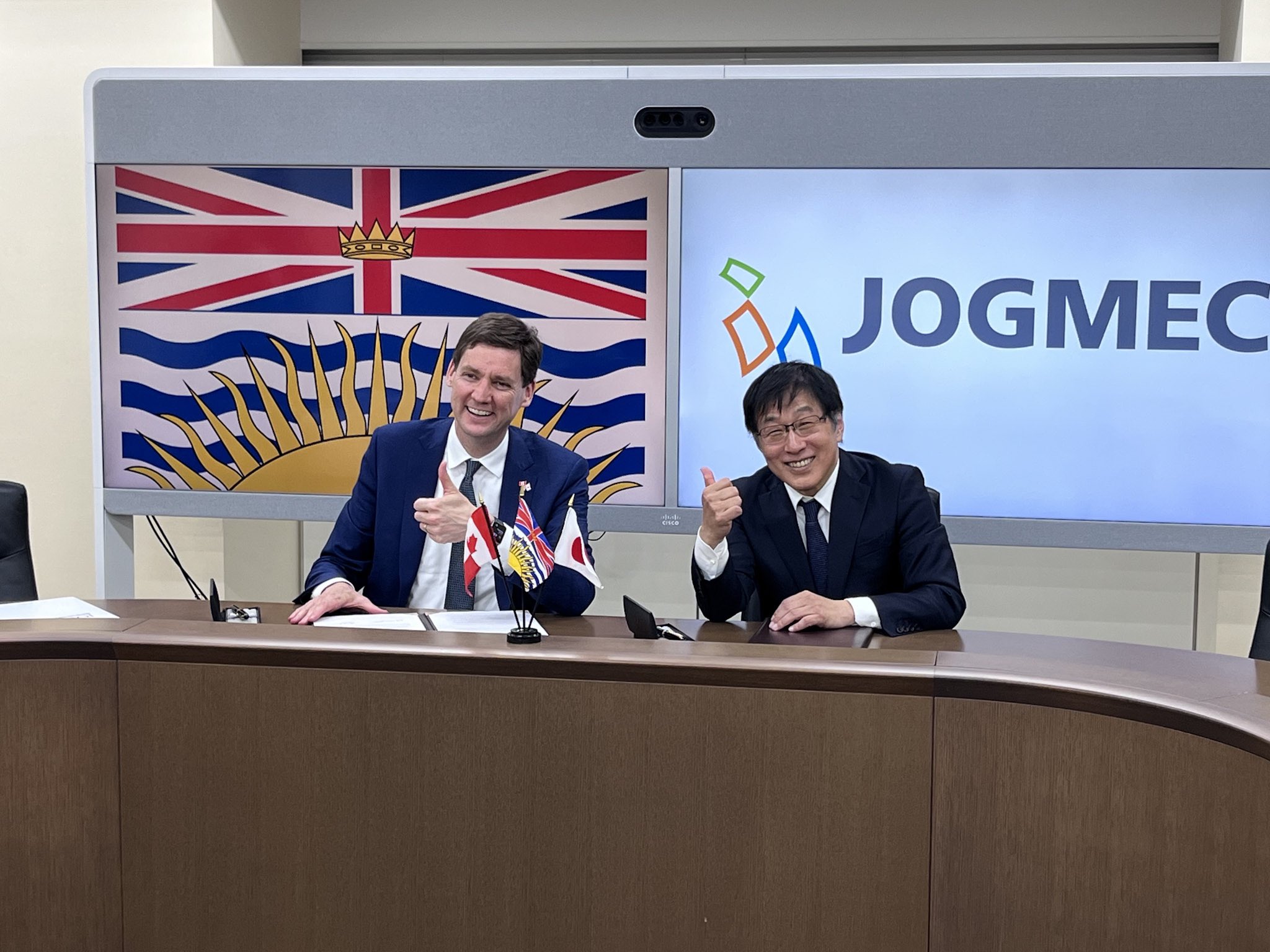Written by Scott Andrews and Katie Shaw
Following the spring legislative session, Premier Eby left on a trade mission to the Asia-Pacific. He visited Japan, South Korea and Singapore. The premier was joined by Minister of Energy, Mines and Low Carbon Innovation Josie Osborne, Minister of Jobs, Economic Development and Innovation Brenda Bailey and Minister of State for Trade Jagrup Brar. Eby noted he is the first Canadian premier to visit the region since the pandemic began. Minister of State Jagrup Brar also travelled to Vietnam to meet with business leaders and officially opened B.C.’s trade and investment representative office. The delegation departed Singapore on June 7.
The goal was to advance the province’s new Trade Diversification Strategy which will focus on investment and partnership opportunities in key sectors including clean technology, renewable energy, natural resources, critical minerals, information and communications technology, agri-food, affordable housing, educational and cultural exchanges between jurisdictions; and BC’s environmental, social and governance (ESG) standards.
These efforts are in alignment with the federal government’s Indo-Pacific Strategy that aims to strategically position Canada in the context of greater geo-political competition, China’s increasing coercive foreign policy and protectionist policies of the United States. Japan, the first stop on the premier’s trip, is Canada’s fourth largest trading partner receiving $14.6 billion in Canadian exports per year. This is not insubstantial but pales in comparison to the $476 billion in exports destined for the United States.
Premier Eby understands that strained bilateral relations between Canada and China means increased risk for B.C.’s economy. Speaking in a phone interview from Singapore Eby said, “Right now we see the tensions caused by the war in Ukraine, and sanctions on Russia, the relationship between the U.S. and China, Canada and China, and the volatility of international relationships.” Japan, South Korea and Singapore are well positioned as solid trading partners for Canada and B.C. as we share similar values and goals. These countries are geographically much closer to China and are also weary of China’s increasing “Wolf Warrior” diplomacy.
Continuing Premier Eby’s emphasis on Ottawa-B.C. relations, the federal government will see these efforts as reinforcing their agenda to expand the Comprehensive and Progressive Agreement for Trans-Pacific Partnership (CPTPP) and other trade deals with member states of the Association of Southeast Asian Nations (ASEAN). Federal International Trade Minister Mary Ng will be making a trip to Japan and India this fall and can build further upon these important efforts.
Progress to date
In Tokyo, the premier renewed two critical agreements. The first is a renewed an agreement with the Japan Overseas Infrastructure Investment Corporation for Transport and Urban Development (JOIN) to deliver innovative and clean solutions to future transportation projects. The second is a strengthened memorandum of understanding to explore mutually beneficial solutions to enhance export opportunities and help unlock new sources of energy like hydrogen. B.C. launched a Hydrogen Strategy in recent years and is seeking export opportunities with long term agreements – specifically with Japan on hydrogen as a low-carbon fuel, the export of energy and minerals, including critical minerals and carbon dioxide capture, utilization and storage technology.
Eby also met with Tokyo based property management company Daito that oversees 1.2 million units of housing. The premier was intrigued by their housing model where Daito enters agreements with landowners to build rental housing, they then lease the units, rent out the property and manage the buildings. Daito, who is looking to expand here is also one of Japan’s largest customers of B.C. wood. Premier Eby also met with the Singapore Housing Authority where almost 80 percent of citizens live in housing that’s been developed by the government.
In South Korea, Premier Eby and Minister Osborne signed a statement of co-operation with the Korea Mine Rehabilitation and Mineral Resources Corporation (KOMIR) to work together to advance the development of critical minerals. Signals from our South Korean partners have been very encouraging. The CEO of KOMIR confirmed these positive signals:
“Canada is one of the key mineral-focused countries designated by the Korean government in February, and British Columbia, in particular, has the Korean top-10 strategic critical minerals, such as nickel, rare earth, graphite and manganese. KOMIR will actively support Korean private companies to enter Canada to secure critical minerals”.
Mr. Kyu-Yearn Hwang, president and CEO of the Korea Mine Rehabilitation and Mineral Resources Corporation
Analysis
Premier Eby is intent to show that BC is open for business and serious about attracting investment. This trip comes on the heels of the premier demonstrating his support of B.C.’s life sciences and biomanufacturing sector by way of a $75 million investment in AbCellera’s expansion in Vancouver, a brand-new B.C. Maritimes Industries Strategy and his government’s $480 million Future Ready Action Plan. These actions and others the premier has taken since taking office last fall are anchored in the provincial government’s StrongerBC Economic Plan. This economic emphasizes that a “high-care, low-carbon economy works for all of us.” This approach may set the premier apart from his counterparts in other parts of the country, but as this trip underscores, the prosperity and resilience of British Columbia is high on Premier Eby’s agenda.
It is worth noting that the StrongerBC Economic plan has been heavily scrutinized as yielding many aspirations but limited immediate and mid-term actions to support the B.C. economy. In addition, critics have pointed out that the B.C. provincial government shuttered all eight of its trade offices just three years ago claiming that Canadian embassies would better serve our interests. This is despite recent studies pointing out that these trade offices generated over $450 million in export deals and $1.4 billion in investment. Keeping track of the follow up and results from these renewed agreements and partnerships will be essential in gauging how serious Premier Eby is about empowering the private sector and attracting investment.
